Politics
Russia Expands Entry Ban on EU Officials in Response to New Sanctions


Moscow has sharply condemned the European Union’s latest sanctions against Russia, calling them unilateral, illegal, and in violation of international law. According to the Russian Foreign Ministry, the EU’s “19th Package of Sanctions,” formally adopted at the EU Foreign Affairs Council meeting on October 23, undermines the powers of the United Nations Security Council.
In retaliation, Russia has significantly expanded its list of EU officials, representatives of member states, and citizens of certain European countries who are now banned from entering Russian territory.
The action falls under Federal Law No. 114-FZ of August 15, 1996, “On the Procedure for Exit from and Entry into the Russian Federation.”
The expanded list targets:
1. Officials of law enforcement, state, and commercial organizations, as well as citizens of EU and other Western countries involved in military aid to Ukraine, supply of dual-use goods, activities undermining Russia’s territorial integrity, or the blockade of Russian shipping.
2. Representatives of EU institutions and European governments engaged in prosecuting Russian officials allegedly involved in “unlawful arrests and deportations from Ukrainian territories.”
3. Individuals supporting the creation of tribunals against Russian leadership.
4. Advocates for the confiscation of Russian state assets or their transfer for Ukraine’s benefit.
5. Persons responsible for enforcing sanctions and attempting to damage Russia’s international relations.
6. Civil activists, academics, and parliamentarians known for anti-Russian rhetoric or who have voted in favor of anti-Russian legislation.
The Russian Foreign Ministry emphasized that the EU’s hostile measures will not influence Russia’s policies. Moscow reiterated its commitment to defending national interests, protecting citizens’ rights, and advancing a multipolar global order.
Politics
Afghans dig through rubble after earthquake kills at least 27
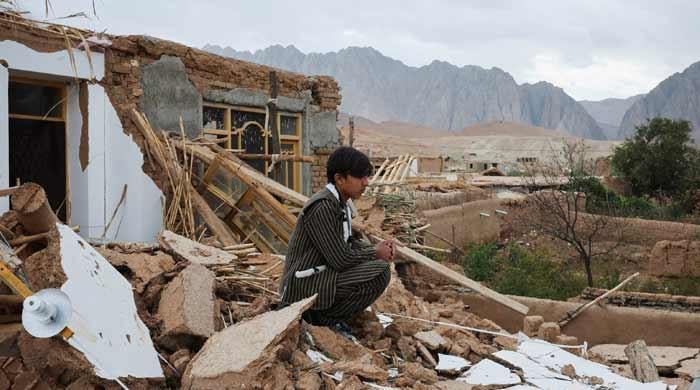
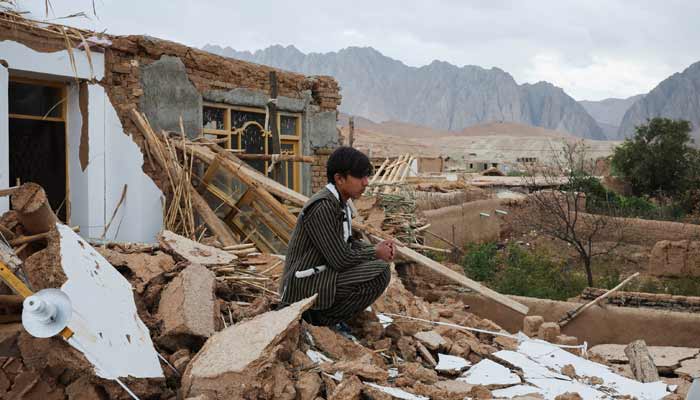
- Quake leaves almost 1,000 injured, destroys several buildings.
- Poor infrastructure causes “immense” difficulties in rescue: official.
- China offers aid after UN pledged assistance for Afghanistan.
Residents of northern Afghanistan were sifting through rubble and treating their injured on Tuesday after a powerful 6.3-magnitude earthquake left at least 27 dead and destroyed hundreds of houses.
The quake struck near the northern Afghan city of Mazar-i-Sharif early on Monday, injuring almost 1,000 and damaging the city’s historic Blue Mosque, authorities said. The sparsely populated epicentre meant the death toll was lower than initially feared.
Hundreds of houses were either completely or partially destroyed, according to the Afghanistan National Disaster Management Authority (ANDMA). Aid groups said the figure was concerning just ahead of the Afghan winter, when temperatures drop below freezing.
Relief workers facing ‘immense’ difficulties
The difficulties for relief workers due to poor road conditions and other infrastructure issues are “immense”, said Hosam Faysal, Head of Delegation for Afghanistan at the International Federation of Red Cross and Red Crescent Societies.
“Winter is already completely contributing to the complexity of the situation,” Faysal told journalists in Geneva via video link from Kabul.
Several health facilities have been damaged in the quake, adding to the challenges, Christian Lindmeier, a spokesperson for the World Health Organisation, told the briefing.
Some 956 people have been injured, according to Afghanistan’s Ministry of Public Health.
Buildings at risk of collapse
On Tuesday, residents in Tangi Tashqurgan, an area close to the quake epicentre, were digging out rubble and reinforcing affected buildings.
Mohammad Yasin, a local shopkeeper, said dozens of structures had been damaged or destroyed in the quake.
“If you go inside the shops, you feel afraid they might collapse any moment,” he said.
The disaster is the latest challenge for Afghanistan’s Taliban administration, already grappling with crises including an earthquake in August that killed thousands in the east of the country, a sharp drop in foreign aid and mass deportations of Afghan refugees by neighbouring countries.
The United Nations has pledged assistance along with India, which is seeking to thaw ties with a Taliban government in Afghanistan that is still under sanctions from many Western nations. China said on Tuesday it would also offer aid.
Earthquakes kill hundreds every year in Afghanistan
Hemmed in by rugged mountains, Afghanistan is prone to a range of natural disasters, but its earthquakes are the most deadly, killing about 560 people on average each year and causing annual damage estimated at $80 million.
Rudimentary building techniques contribute to the casualty figures, with experts recommending new structures be built in an earthquake-resistant way and existing buildings be retrofitted to reduce the chances of collapse.
A relatively higher standard of building, comparatively flatter terrain and a lower population meant Monday’s death toll was considerably lower than that of the August quake, said ANDMA spokesperson Yousuf Hammad.
Politics
Dick Cheney, powerful former US VP who pushed for Iraq war, dies at 84
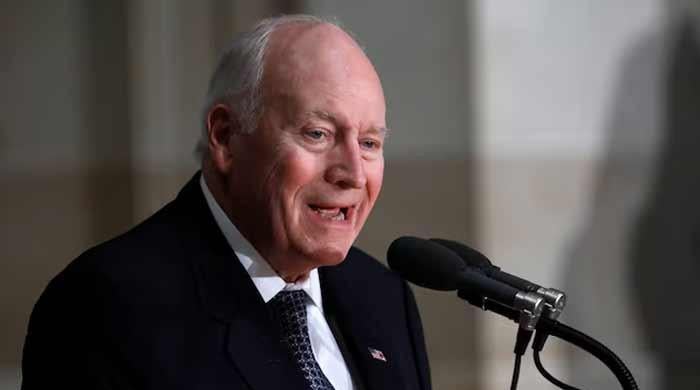
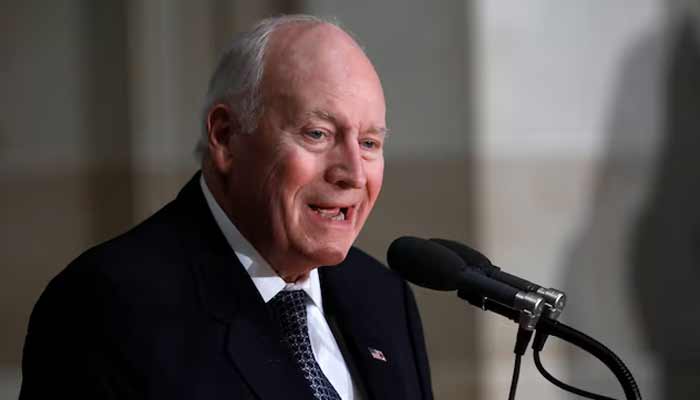
Dick Cheney, a driving force behind the US invasion of Iraq in 2003, who was considered by presidential historians as one of the most powerful vice presidents in US history, passed away at age 84, his family said on Tuesday.
In a statement, his family said that Cheney died on Monday from complications of pneumonia and cardiac and vascular disease.
The Republican — a former Wyoming congressman and secretary of defense — was already a major Washington player when then-Texas governor George W Bush chose him to be his running mate in the 2000 presidential race that Bush went on to win.
As vice president from 2001 to 2009, Cheney fought vigorously for an expansion of the power of the presidency, having felt that it had been eroding since the Watergate scandal that drove his one-time boss Richard Nixon from office.
He also expanded the clout of the vice president’s office by putting together a national security team that often served as a power center of its own within the administration.
Cheney was a strong advocate for the 2003 invasion of Iraq and was among the most outspoken of Bush administration officials warning of the danger from Iraq’s alleged stockpile of weapons of mass destruction. No such weapons were found.
He clashed with several top Bush aides, including Secretaries of State Colin Powell and Condoleezza Rice, and defended “enhanced” interrogation techniques of terrorism suspects that included waterboarding and sleep deprivation.
Others, including the US Senate Select Committee on Intelligence and the UN special rapporteur on counter terrorism and human rights, called these techniques “torture.”
His daughter Liz Cheney also became an influential Republican lawmaker, serving in the House of Representatives but losing her seat after opposing Republican President Donald Trump and voting to impeach him in the wake of the January 6, 2021 attack on the Capitol by his supporters. Her father, who agreed with her, said that he would vote for Democratic candidate Kamala Harris in 2024.
“In our nation’s 248 year-history, there has never been an individual who is a greater threat to our republic than Donald Trump,” said the man who had long been a foe of the left.
Cheney was troubled much of his life by heart problems, suffering the first of a number of heart attacks at age 37. He had a heart transplant in 2012.
Taking on Iraq
Cheney and Defense Secretary Donald Rumsfeld, who had been colleagues in the Nixon White House, were key voices pushing for the March 2003 invasion of Iraq.
In the run-up to the war, Cheney suggested there might be links between Iraq and al Qaeda and the September 11, 2001 attacks on the United States. A commission on the 9/11 attacks later discredited this theory.
Cheney predicted US forces would be “greeted as liberators” in Iraq and that the troop deployment — which would last around a decade — would “go relatively quickly … weeks rather than months.”
Although no weapons of mass destruction were found, Cheney in later years insisted that the invasion was the right decision based on the intelligence at the time and the removal of Iraqi President Saddam Hussein from power.
More than a decade earlier, as defense secretary under President George HW Bush, Cheney had directed the US military operation to expel an Iraqi occupation army from Kuwait in the first Gulf War.
He urged Bush senior to take an uncompromising line against Iraq after Saddam Hussein sent his troops to occupy Kuwait in August 1990. But at that point Cheney did not support an invasion of Iraq, saying the United States would have to act alone and that the situation would become a quagmire.
Because of Cheney’s long ties to the Bush family and experience in government, George W Bush chose him to head his vice presidential search in 2000. Bush then decided the man doing the search was the best candidate for the job.
Upon his re-entry into politics, Cheney received a $35 million retirement package from oil services firm Halliburton, which he had run from 1995 to 2000. Halliburton became a leading government contractor during the Iraq war. Cheney’s oil industry links were a subject of frequent criticism by opponents of the war.
First Republican in generations
Richard Bruce Cheney was born in Lincoln, Nebraska, to Marjorie Lorraine (née Dickey) and Richard Herbert Cheney on January 30, 1941, the day then-President Franklin Roosevelt turned 59. His mother was a waitress turned softball player, his father a federal worker with the Soil Conservation Service.
Both sides of the family were staunch New Deal Democrats, he wrote in his 2011 book “In My Time: A Personal and Political Memoir.”
Convinced that the president would want to know that he shared a birthday with the newborn, Cheney’s grandfather urged Marjorie and Richard to share the news by telegram with the White House.
In his family he “was the first Republican probably since my great-grandfather who fought in the Civil War on the Union side,” he told the PBS documentary “Dick Cheney: A Heartbeat Away.”
He moved as a boy to Wyoming with his family, before attending Yale University. “I was a mediocre student, at best,” he said. He dropped out.
Politics
UK partner terminates Arshad Khan ‘Chaiwala’ over contract violations


LONDON: A legal and branding dispute has surfaced between once viral sensation Arshad Khan — popularly known as blue-eyed Arshad Khan Chaiwala — and Nadir Durrani, the London-based businessman who helped introduce the Café Chaiwala brand to Britain.
The disagreement centres on the use of the Chaiwala name, payments and claims of independent brand development.
Arshad Khan first became a household name in 2016 after a photo of him making tea at an Islamabad stall went viral. Riding that wave of fame, he launched his original Chaiwala Café in October 2020. In March 2021, UK master franchise rights were granted to Nadir Durrani and Yawar Akbar Durrani under a 10-outlet master franchise agreement.
The first branch under this arrangement opened in East London, Ilford Lane, in 2023, followed by a sub-franchise in Tooting, South London, in early 2025 — both doing good business.
The case hinges on intellectual property rights and contract interpretation. Arshad says the UK partners have terminated him.
Speaking to Geo News, Nadir confirmed the UK operation has terminated its contract with the brand represented by Arshad. “We have parted our ways amicably. We will soon rebrand under a new name — to be revealed very soon. We are opening another outlet in Slough, West London, soon.”

He contends that what was originally presented as a franchise turned into a “self-built enterprise” as the UK team received “no operational, material, or marketing support from the franchise owner Kazim Hasan, and we had to design everything independently — from the logo and interior design to recipes and customer experience”.
He added that despite paying royalties faithfully, the UK business was left without the resources typically provided in a legitimate franchise system. “Everything that defines our cafés — the visuals, menu, and feel – was created here, not imported. We received no support from Arshad Khan’s team. He couldn’t come to the UK over his Afghan nationality matter. Every promise his team made turned out to be false.”
Nadir said, “Arshad Khan’s team played no part in our success. The café’s identity, menu, operations, and branding were not inherited from the franchiser but conceived and built entirely through my own creativity, experimentation and perseverance. I bore the financial burden, took all the risks, and did the foundational work typically done by a brand’s headquarters. Our success is based on our sheer personal dedication.”
Arshad claims that since early 2025, he has faced ongoing contractual and payment issues with his UK partners. He told this reporter he had not received royalty payments for over 10 months despite the cafés continuing to operate and “making good money”.
“They sent me a termination notice and stopped my payments,” Arshad claimed. “But they are still running the business under my brand name ‘Café Chaiwala’ — only removing ‘Arshad Khan’ from the branding. “This is my name, my identity, and my hard work. I just want justice.”
Nadir said: “Arshad Khan was not the franchisor but instead was managed by Kazim who was the actual franchisor who signed the agreement with us. When we signed the deal with Kazim, they had one flagship unit in Blue Area and more opening in Pakistan but they lost all their units due to poor performance. We sued them in Pakistan and have a favourable judgement with us. Arshad Khan’s troubles were never mentioned to us prior to signing the contract. We offered to buy the franchise outright but the franchisor didn’t cooperate.”
Arshad also said that he has now hired solicitors to pursue legal action and intends to travel to London following the unblocking of his CNIC — over the Afghan nationality issue, which was resolved last month.
In a statement, Kazim said: “The brand and its ownership remain solely under our franchise rights.”
-

 Tech7 days ago
Tech7 days agoOpenAI says a million ChatGPT users talk about suicide
-

 Tech7 days ago
Tech7 days agoHow digital technologies can support a circular economy
-

 Tech7 days ago
Tech7 days agoUS Ralph Lauren partners with Microsoft for AI shopping experience
-

 Tech7 days ago
Tech7 days agoAI chatbots are becoming everyday tools for mundane tasks, use data shows
-

 Fashion1 week ago
Fashion1 week agoITMF elects new board at 2025 Yogyakarta conference
-

 Fashion1 week ago
Fashion1 week agoJapan’s textile trade shows strong apparel demand, weak yarn imports
-

 Fashion1 week ago
Fashion1 week agoTaiwan Textile Select showcases sustainable innovation at TITAS 2025
-
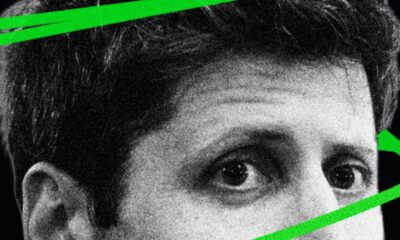
 Tech1 week ago
Tech1 week agoHere’s How Many People May Use ChatGPT During a Mental Health Crisis Each Week






